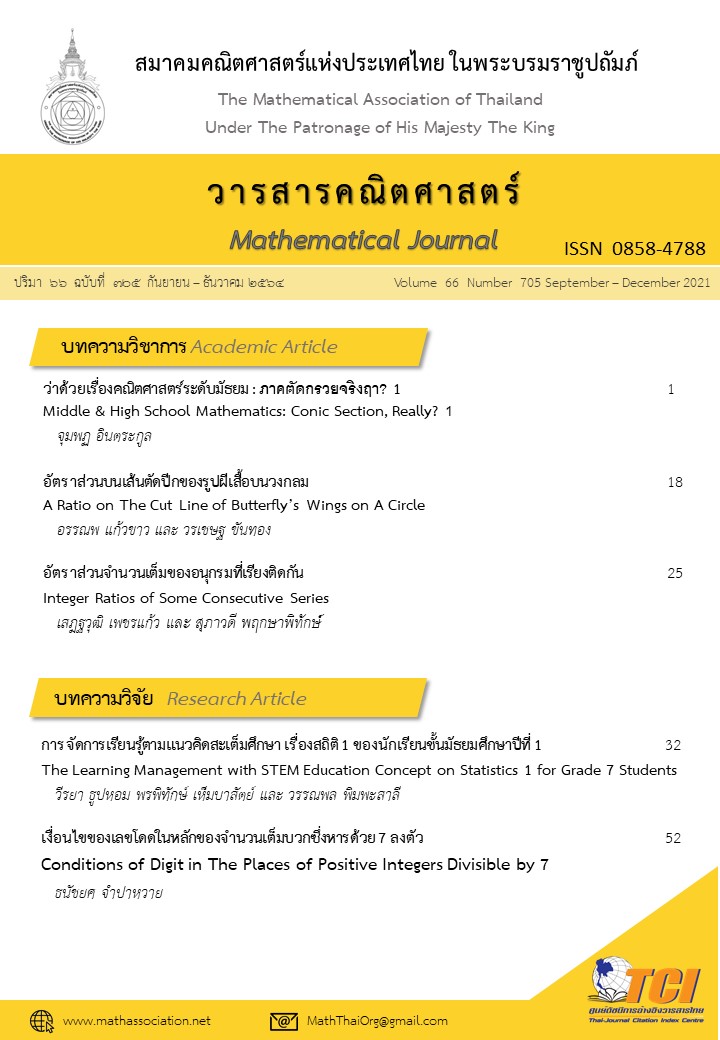Integer Ratios of Some Consecutive Series
Main Article Content
Abstract
In this article, we establish necessary and sufficient conditions for the ratio of some consecutive series to be integers. The series that we investigate in the article are as follows:
and
Article Details
How to Cite
Petchkaew, S., & Prugsapitak, S. (2021). Integer Ratios of Some Consecutive Series. Mathematical Journal by The Mathematical Association of Thailand Under The Patronage of His Majesty The King, 66(705), 25–31. retrieved from https://ph02.tci-thaijo.org/index.php/MJMATh/article/view/242459
Section
Academic Article
References
Baoulina, I. N., Moree, P. (2016). Forbidden Integer Ratios of Consecutive Power Sums. In: Sander, J., Steuding, J., Steuding, R., eds. From Arithmetic to Zeta-Functions: Number Theory in Memory of Wolfgang Schwarz, p. 1 - 30. Springer.
Baoulina, I. N. (2019). Integer Ratios of Consecutive Alternating Power Sums. The American Mathematical Monthly, 126 (7), p. 651 - 654.
Moree, P. (2013). Moser’s Mathemagical Work on The Equation 1^k + 2^k + cdots + (m-1)^k = m^k. Rocky Mounta in J. Math. 43 (5), p. 1707 - 1737.


